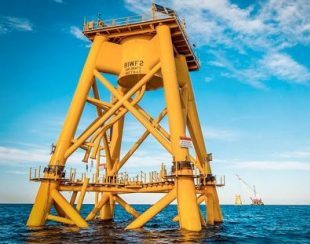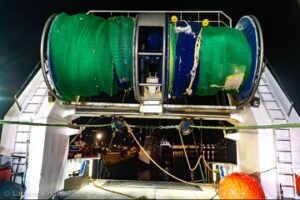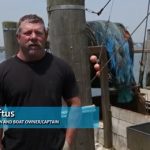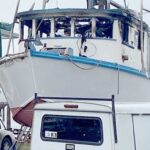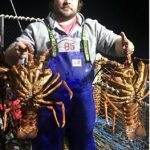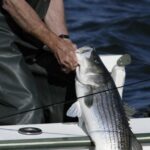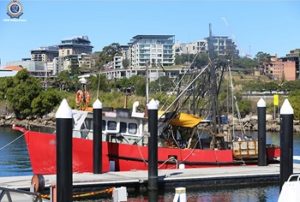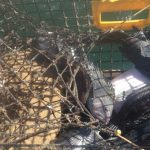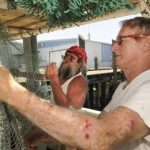Monthly Archives: April 2018
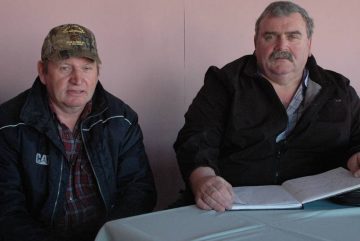
NOFTA membership wants changes in fisheries management so their communities can survive
The North of Fifty-Thirty Association (NOFTA) is working to identify issues and solutions for the fishery on the Great Northern Peninsula. Over the past couple of years, enterprises in the region have been hit by shrimp quota cuts, seen capelin seemingly disappear and, most recently, received word of a drop in northern cod stocks. Feeling the pressure, NOFTA’s members want to see some management changes so their communities can survive. >click to read<11:56
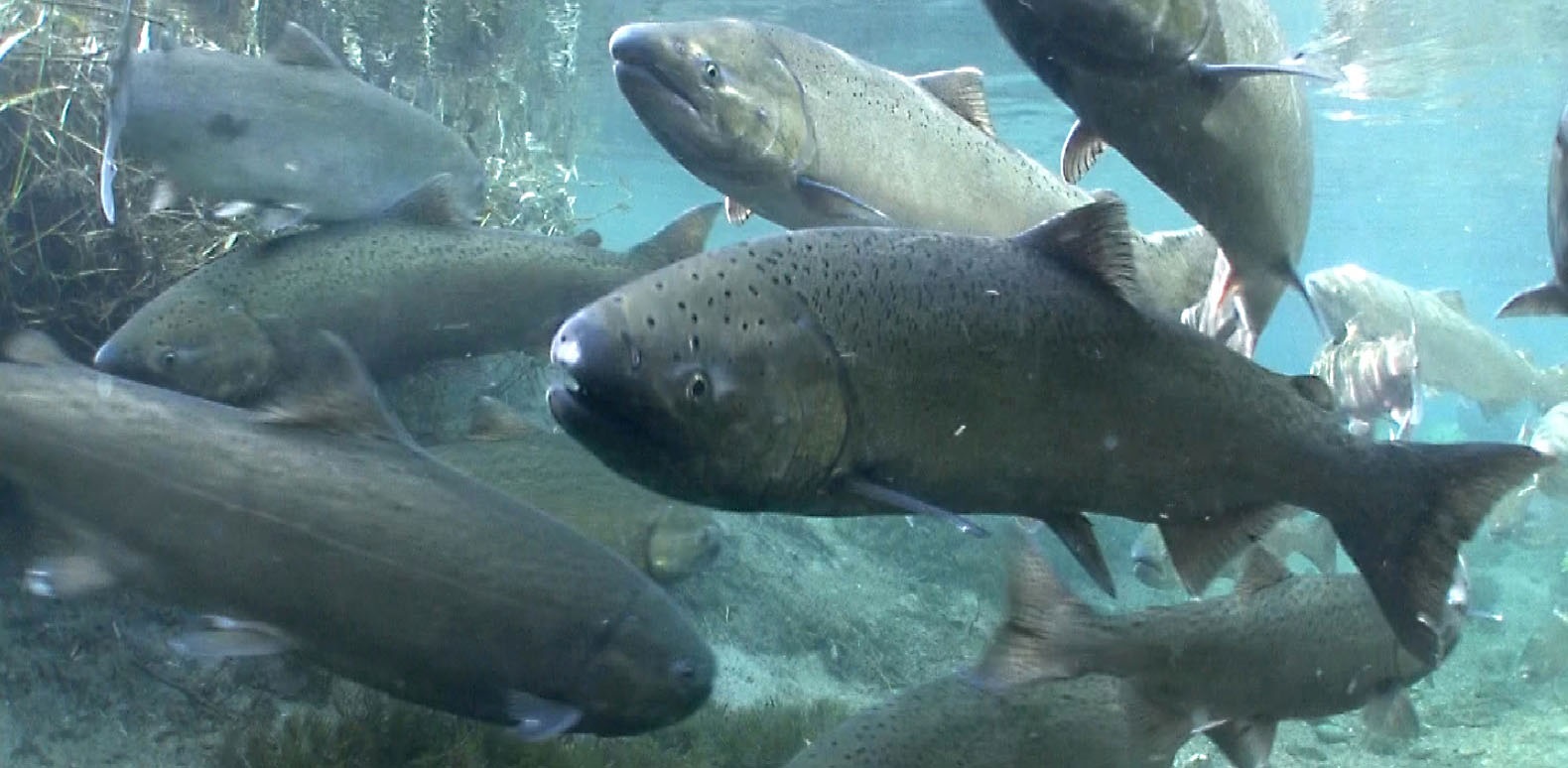
Commercial fishermen hit hard by king cuts
Commercial king salmon fishermen will have a tough time making ends meet this summer. The all-gear harvest limit for Chinook salmon — the pot of king salmon divided between gear groups in Southeast — is about 40 percent smaller this year, the Alaska Department of Fish and Game announced Wednesday. The reduction, from nearly 210,000 fish in 2017 to 130,000 in 2018, is based on an index of the abundance of fish ADFG expects to spawn on Southeast and transboundary rivers this summer. ADFG is expecting record-low returns of king salmon,,, >click to read<10:36
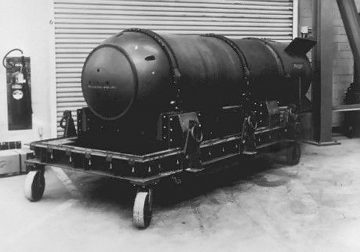
Remember when we lost that hydrogen bomb?
With all the talk of late regarding nuclear bombs from North Korea and Russia and such, I was reminded this week of something I’d heard when I was a kid that you might not know a thing about.
But maybe you should.,, On February 5 of that year a 7,000-pound hydrogen bomb was lost off the Georgia coast. ,,, In this month’s Garden & Gun magazine, a new twist to the lost bomb story arises. It seems a shrimper named Bubba Smith shared a story to his closest friends before he passed away in 2006 that bears retelling. >click to read< 10:07
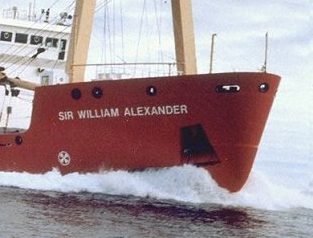
Icebreaker dispatched to Gulf of St. Lawrence to hasten crab season — and save whales
A Canadian Coast Guard icebreaker has been called in to smash through pack ice off the northeast coast of New Brunswick in an unusual bid to help the critically endangered North Atlantic right whales expected to make their way to Canadian waters later this spring. The goal is to allow local snow crab fishermen to complete their season in the Gulf of St. Lawrence earlier than usual, which should reduce the number of ship strikes and entanglements with fishing gear that killed so many whales last year. >click to read<08:14
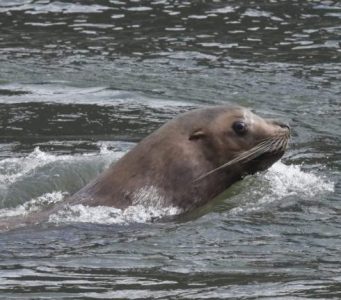
‘We’re losing’ sea lion fight – State, tribal, federal agencies back Herrera Beutler bill
The National Oceanic and Atmospheric Administration Fisheries division estimates about 45 percent of spring chinook salmon are lost between the mouth of the Columbia and Bonneville Dam, with sea lions being primarily responsible.,, For that reason, the Inter-Tribal Fish Commission is supporting legislation by Rep. Jaime Herrera Beutler, R-Battle Ground, and Kurt Schrader, D-Ore., titled the Endangered Salmon and Fisheries Predation Prevention Act. The bill would amend the Marine Mammal Protection Act of 1972 to make it easier for state and tribal wildlife managers to kill sea lions that predate salmon and steelhead and other fish in the Columbia River and its tributaries. >click to read<07:28
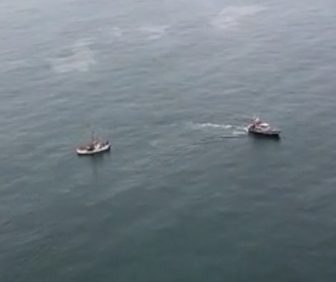
Coast Guard assists 3 fishermen following boat fire near Table Bluff
The Coast Guard aided three fishermen in distress after their 45-foot fishing vessel caught fire and was flooding near Table Bluff, Wednesday morning. A crew member of the commercial fishing vessel Advance called watchstanders at Coast Guard Sector Humboldt Bay via cell phone around 8:30 a.m., reporting an engine fire and flooding with three people on board. The caller said the crew was fighting the fire by dumping buckets of water into the engine compartment. >click to read<23:13
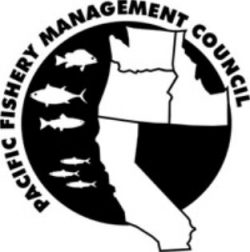
Pacific Fishery Management Council meeting in Portland, Oregon April 5-11
The Pacific Fishery Management Council and its advisory bodies will meet April 5-11, 2018 in Portland, Oregon. Meeting Notice With Detailed Agenda >click here< >click here<to listen to the Live Stream starting Friday, April 6, 2018 beginning at approximately 9:00 AM Pacific Time Enter the Webinar ID code : 530-089-227) PFMC link21:05
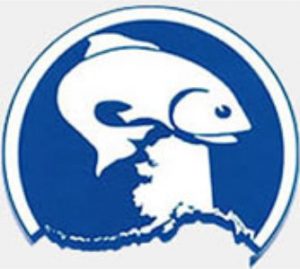
North Pacific Fishery Management Council Meeting in Anchorage April 2-10
The North Pacific Fishery Management Council will meet the week of April 2-10, 2018 at the Hilton Hotel, 500 W. 3rd Avenue, Anchorage, AK. The Agenda and Schedule are available as well as a list of review documents and their associated posting dates. Listen online >click here< while the meeting is in session. NPFMC link

FISH-NL reiterates call for province to allow in outside buyers after panel sets 2018 snow crab price at far less than the mainland
The Federation of Independent Sea Harvesters of Newfoundland and Labrador (FISH-NL) says the decision of the Fish Price Setting Panel to set the 2018 price for snow crab at $4.55 a pound — well below the price paid to crab harvesters in the Maritimes — supports the call to open the provincial market to outside buyers. “When you learn the price of crab in Newfoundland and Labrador has been set at $4.55 a pound on the same day that a crab fisherman in Louisbourg, Nova Scotia is paid $6 a pound it’s very disheartening,” says Jason Sullivan, Captain of FISH-NL’s under 40-foot fleet. >click to read<18:24
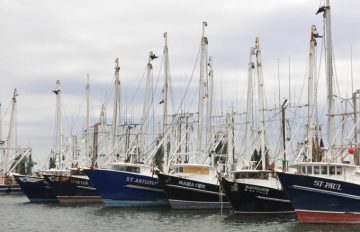
Palacios job fair hopes to fill needed shrimping positions
The shrimping season is around the corner and thousands of shrimpers will be clamoring for jobs on shrimp boats throughout the Texas Gulf Coast. However, finding enough workers to take those jobs may prove harder this year than last. With that in mind, the Texas Workforce Commission (TWC) and U.S. Rep. Blake Farenthold have scheduled a job fair for April 10 from 9 a.m. to noon in Palacios to fill dozens of jobs. In the past, the shrimping industry relied on H2B visas to hire foreign workers for seasonal shrimping jobs. Farenthold has teamed with the TWC to fill these jobs with as many Americans as possible due to a high demand for H2B visas. >click to read<17:17
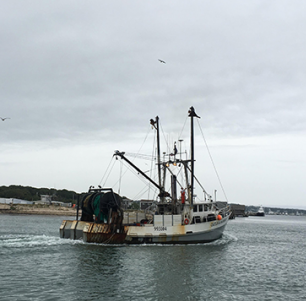
Carbon Emissions: Beef, Lamb, Lobster or Fish?
A new study by the University of Tasmania, Australia, and Canadian scientists has found that catching most types of fish produces far less carbon per kilogram of protein than land-based alternatives such as beef or lamb. The researchers found that fisheries for small pelagic species such as anchovies and sardines emit a fraction of the carbon generated by red meat production. On average, global fisheries have a low-carbon footprint similar to that of poultry. Lead author Dr Robert Parker, now at the University of British Colombia in Vancouver, said,, >click to read<16:01

P.E.I. Lobster fishery reduces floating rope in hopes of protecting North Atlantic right whales
Lobster fishers on P.E.I. are taking new measures this season to help protect the endangered North Atlantic right whales from entanglement. In January, Fisheries and Oceans Minister Dominic LeBlanc announced changes to the snow crab fishery in the Gulf of St. Lawrence to protect the right whales, including reducing the amount of rope floating on the surface and mandatory reporting of all lost gear. Fishermen are also required to report any sightings of the endangered whales. >click to read<13:46
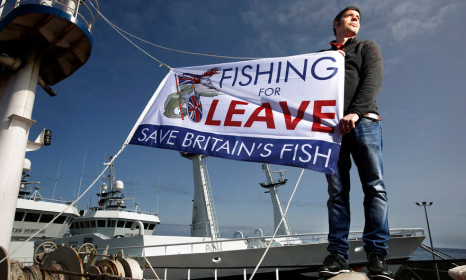
Fishermen are staging a mass protest in Plymouth on Sunday against the Brexit transition deal
Fishermen from around Devon and Cornwall will converge on Plymouth next Sunday in a protest against the Brexit transition deal. The fishermen say they were sold out when Britain joined the EU, and they fear they will be sold out as we leave. Local organiser Shane Farrow said 68 boats were confirmed for the rally. Boats from as far away as Newlyn and Teignmouth will meet up in the Sound on Sunday at 3pm as part of a nationwide day of protest organised by the group Fishing For Leave. >click to read<13:17
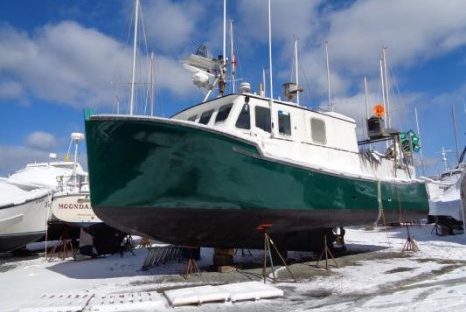
Athearn Marine Agency Boat of the Week: 40′ Novi Gillnetter/Lobster, 300HP John Deere
Specifications, information and 17 photos >click here< To see all the boats in this series, >Click here<12:55
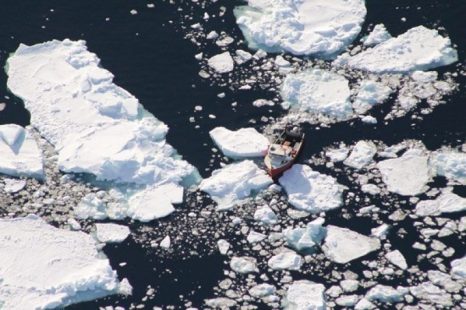
The hunt Canada loves: Why seal clubbing will never die (It’s more humane than most opponents think)
It’s sealing season once again in Canada. This means that, once again, activists are out in strength to decry Canadians as baby-killers and, in some cases, ISIS. And on Tuesday, Canada’s strained relationship with India got just a bit worse when India banned the import of seal skins (although, for obvious reasons, they were never a major seal skin market). Below, a quick guide to the one of the world’s most embattled hunts. What’s true, what’s a myth and why Canadians will never, ever stop doing this. >click to read<09:18
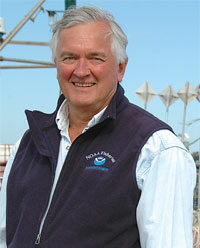
John Bullard’s Right whale challenge angers lobstermen
Bullard may have left behind the daily responsibilities of running the Greater Atlantic Regional Fisheries Office, but he took his bully pulpit with him. On Monday, he published an op-ed piece in the Boston Globe challenging the U.S. commercial lobster industry — predominately based in Maine and Massachusetts, where Gloucester and Rockport are the top ports — to take the lead in trying to head off the extinction of the North Atlantic right whales. While he also carved out a role for scientists, non-governmental organizations and fishery managers in the hunt for solutions, Bullard’s emphasis on the lobster industry did not sit well with local lobstermen, who believed their industry was being singled out. >click to read<19:02
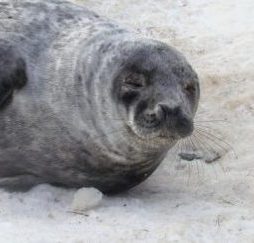
Call for Increased Seal Hunt as Population Surges
Hungry East Coast seal populations have surged in recent decades, spurring calls for an increased seal hunt — and even a possible cull — to protect fragile caplin and northern cod stocks. The Northwest Atlantic harp seal population is estimated at about 7.4 million animals — almost six times what it was in the 1970s, according to the federal Department of Fisheries and Oceans. Grey seal numbers in the Gulf of St. Lawrence have grown from about 5,000 animals in 1960 to an estimated 98,000 in 2014, according to the department. >click to read<16:04
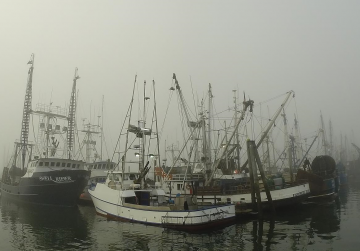
New study reveals cost of 2017 salmon fisheries closure
Last year’s closure of the commercial ocean salmon troll fishery off the West Coast is estimated to have cost $5.8 million to $8.9 million in lost income for fishermen, with the loss of 200 to 330 jobs, according to a new model that determines the cost of fisheries closures based on the choices fishermen make. Scientists hope the model, described for the first time this week in Marine Policy, will help policy makers anticipate the economic toll of fisheries closures. >click to read<15:40
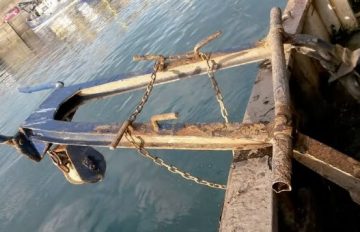
Lessons learned: Submarine snagging into fishing gears
It was a clear, calm day and a prawn trawler was towing its nets in coastal fishing grounds; the depth of water was about 100m and there were over 60 fishing boats, mainly trawlers, operating in the area. At the same time, a nuclear-powered submarine was conducting a submerged passage through the area. The submarine was deep below the surface where periscopes and radar could not be used; this meant that it was reliant on its sonar systems to detect noises from other vessels in order to avoid them.,, As the submarine approached the fishing grounds, >click to read<15:08
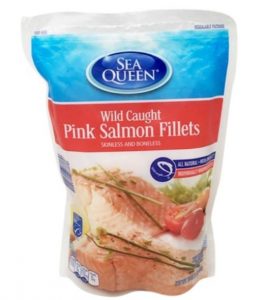
China’s fish
The national seafood media was Monday atwitter with speculation China might impose tariffs on American seafood, and Alaska Commissioner of Commerce Mike Navarre was trying to spin the state’s proposed liquified natural gas (LNG) project as some sort of shelter against a looming U.S.-China trade war. “For now, China appears to be leaving Alaska seafood alone,” added reporter Liz Raines. There was no “appears” about it.,, Why? Because China – sometimes with the help of North Korean serfs – has turned Alaska fish into a moneymaker for China. >click to read< 14:16
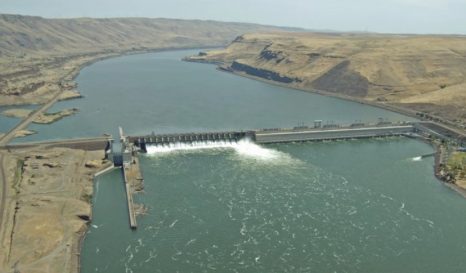
Appellate court orders more water over Columbia, Snake dams to aid fish
More water will flow over several federally operated Northwest dams beginning Tuesday, a day after conservationists and the state of Oregon won a court victory in the long-running battle over the plight of salmon and steelhead in the region. A panel of judges at the U.S. Court of Appeals for the Ninth Circuit affirmed a district court order to protect juvenile fish migrating downstream on the Columbia and Snake rivers by increasing spill at eight dams. This fight has been going on since 2000, when the National Wildlife Federation challenged the National Marine,,, >click to read<13:04
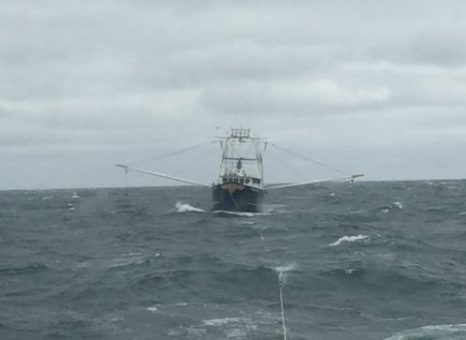
Coast Guard assists disabled fishing vessel 40 miles east of Atlantic City, NJ
The Coast Guard assisted a disabled fishing vessel 40 miles east of Atlantic City, New Jersey, Sunday. Watchstanders at Coast Guard Sector Delaware Bay were notified at about 10:30 p.m. via VHF-FM channel 16, that the 90-foot fishing vessel Margaret Rose carrying seven people was disabled from engine failure. Once on scene, the USCGC Dolphin crew towed the vessel to Cape May, New Jersey, where the fishing vessel anchored and is awaiting commercial salvage. >click to read<12:21
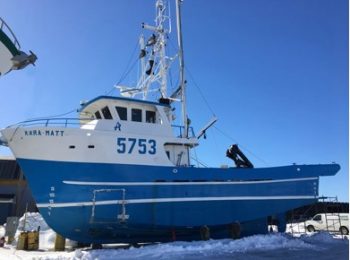
Fishing Vessel Repowered after Big Hours
After 60,000 hours of service, crab fisherman Robert Ross decided that his 19-liter Cummins 1150M had earned a rest. The 500 HP engine had been a perfect match for his 72- by 26-foot aluminum boat so he ordered up a new Cummins KTA19-M3 at 500 HP, continuous duty, from his local supplier Cummins Sales and Service in Fredericton, New Brunswick, in eastern Canada. Ross had his well-maintained 39-year-old boat, the Kara-Matt, hauled out at a shipyard and Dugas Equipment Ltd. of Caraquet, New Brunswick took on the repower. >click to read<11:12
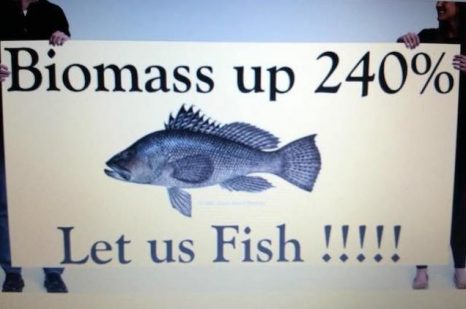
Black sea bass quota reduction for N.Y. has local lawmakers up in arms
The decision last month by the Atlantic States Marine Fisheries Commission to reduce New York’s black sea bass quota by 12 percent this year has anglers, state environmental regulators and local lawmakers up in arms. “This action discriminates against the State of New York. It would have a significant adverse effect on the Long Island economy,” State Senator Ken LaValle (R-Port Jefferson) and Assemblyman Fred Thiele (I-Sag Harbor) said yesterday in a joint statement. New York has joined Massachusetts, Rhode Island and Connecticut in an appeal,,, >click to read<09:12
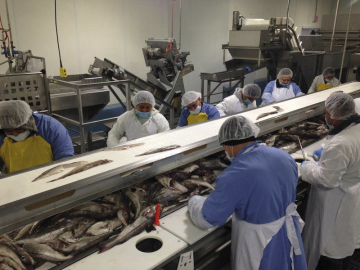
Word of Gloucester Seafood Processing reopening catches city leaders by surprise!
The comments last week by the founder of the Mazzetta Company that the seafood processor will resume processing fresh fish at its largely dormant Gloucester Seafood Processing plant caught many by surprise — including city officials. Tom Mazzetta, the chief executive officer of the Illinois-based seafood conglomerate that bears his family’s name, told a respected fishing website that the Gloucester Seafood Processing plant in the Blackburn Industrial Park will resume operations before the year is out. >click to read<23:15
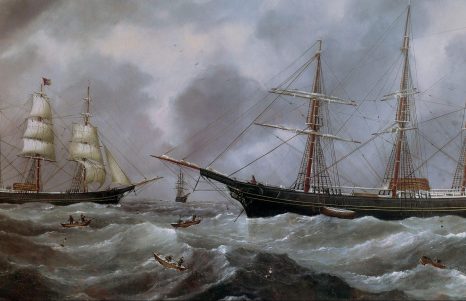
How Bomb Debris from Bristol, England, Made a Road in NYC
Here and there along the shores of the island of Newfoundland there are large amounts of flint. Since flint does not occur naturally in the area, we know that it was once ballast. This is what remains of the vast seasonal Grand Banks fisheries, so important from the early 16th to the early 20th centuries. In Eurocentric terms, Newfoundland was discovered in 1497 by John Cabot, a Venetian-born navigator sponsored by King Henry VII of England and a group of Bristol merchants. By that time, of course, there had been people living in Newfoundland,,, >click to read<13:38

John Bullard: Lobster industry must lead on right whales
A NUMBER OF EVENTS over the past two weeks have probably gotten the full attention of the US lobster industry and increased pressure for it to take the lead in fighting the potential extinction of the North Atlantic right whale. In response to the deaths of the endangered whale, including 12 in Canada last year, Canada has imposed new restrictions on ship speeds and snow crab fishing, as well as earmarked $1 million more annually to help free marine mammals from fishing gear. >click to read<12:03

Voices of Alaska: A call to fishermen
Things are getting sideways out there in the ocean. Nearly every fishermen who’s motored in recent years along the Peninsula coast and around to Bristol Bay would probably agree. I do it every year, working my way from Kodiak to Naknek over the course of a week. And the last 10 years, with increasingly warmer water, have brought one weird phenomenon after another. Massive sea bird die offs. Whale strandings. Extraterrestial looking tropical species on the beach. The forage fish are heading for colder deeper waters at odd times.,,Now, the Pebble Mine,, >click to read<11:37
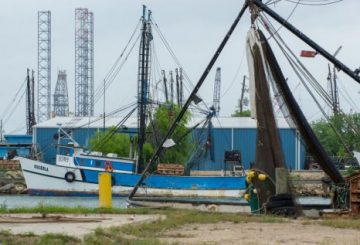
SIMP: Federal monitoring program will track foreign imports
A decision by Congress to add imported shrimp to the Seafood Import Monitoring Program is good news for an industry not used to hearing good news. The Gulf shrimp industry has struggled against a rising tide of cheap foreign imports for years, making it tough for domestic shrimp boat operators to make a living. Combined with the factors, this situation has led to a dramatic decline in the size of the Brownsville-Port Isabel shrimp fleet.,, The purpose is to thwart illegal, unreported and unregulated fishing activity. >click to read<10:38






